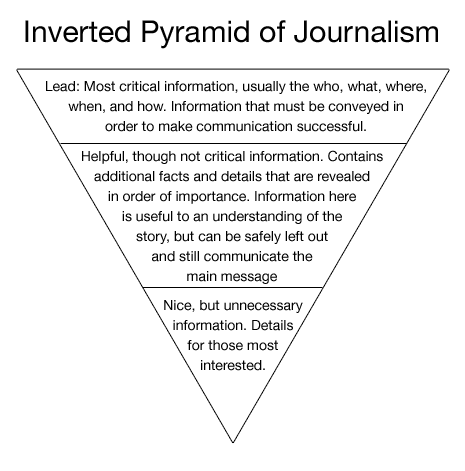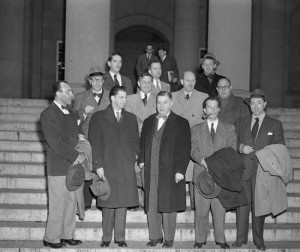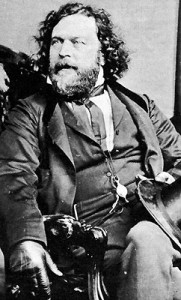Objectivity is a term that arose in the field of journalism in the early 20th century, when journalist bias first started to come into question.
Objectivity appeared as an extension of the realist thought that appeared in the late 19th century. Realism presented the idea that journalists should simply discover and report the facts, and the truth would reveal itself.
Around the same time, the inverted pyramid style of writing was developed. The idea was to organize each story in a specific way, where facts would flow from most to least important, in the end concluding the truth.

http://www.vanseodesign.com/web-design/inverted-pyramid-design/
However, as journalism began to separate from political parties, a greater realization of journalist bias appeared. Thus came the idea of “the objective journalist.”
Realism did not provide a standardized system of fact-checking. Objectivity created a standard by which journalists must “develop a consistent method of testing information.”
Today, however, objectivity in journalism as come into question. New forms of journalism, including online journalism and several other media platforms, have brought back a significant market of partisan journalism.
Thus with the changing times, the ethical standard of objectivity has come into question.
Historically, most journalists were skilled professionals, and all journalists were expected to be objective.
Today we ask ourselves, who is a journalist?
Is it anyone with a keyboard and a social media account? Is it anyone with a blog? Is a true journalist still a professional?
And these questions beg another inquiry — is objectivity still necessary?
We live in a world where there are countless amounts of news sources. If one source is subjective, a reader can seek a variety of other sources to compile a well-rounded understanding, combining the different viewpoints.
The growing influence of “citizen journalists,” or everyday people reporting on the news they witness through various forms of media, who have no standards with which they must comply, has played a major part in this dilemma as well.
And lastly, with the perceived economic failure of many news outlets, studies have shown readers prefer radical, partisan journalism over unbiased sources.
As one source states: “To be impartial is said to be boring to viewers. Audiences are said to be attracted to strong opinion and conflicts of opinion.”
Today in a world where anyone can report on anything, and the line between professional journalist and everyday citizen continues to be blurred more and more, it seems that being transparent — admitting to your partisan perspective — is more valuable than being objective.
















